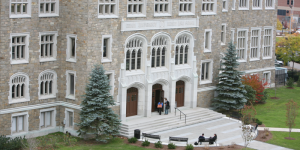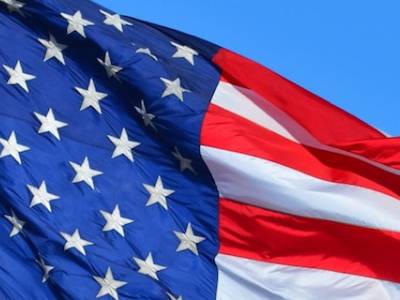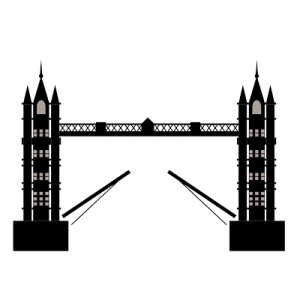§ 520.6 Study of Law in Foreign Country; Required Legal Education(a) General. An applicant who has studied in a foreign country may qualify to take the New York State bar examination by submitting to the New York State Board of Law Examiners satisfactory proof of the legal education required by this section.
(b) Legal education. The applicant must satisfy the educational requirements of either paragraph (1) or (2) of this subdivision.
(1) The applicant shall show fulfillment of the educational requirements for admission to the practice of law in a country other than the United States by successful completion of a period of law study in a law school or schools each of which, throughout the period of the applicant's study therein, was approved by the government or an authorized accrediting body in such country, or of a political subdivision thereof, to award a first degree in law, and satisfaction of the following requirements:
(i)(a) Durational requirements. The program and course of law study successfully completed by the applicant was substantially equivalent in duration to the legal education provided by an American Bar Association approved law school in the United States, and in substantial compliance with the instructional and academic calendar requirements of section 520.3(c)(1)(i) and (ii) and (d)(1) of this Part; and
(b) Substantive requirements. Such other country is one whose jurisprudence is based upon the principles of English Common Law, and that the program and course of law study successfully completed by the applicant were the substantial equivalent of the legal education provided by an American Bar Association approved law school in the United States.
(ii) Cure provision. An applicant who does not meet the requirements of subparagraph (i)(a) or (i)(b) may cure either
the durational or
substantive deficiency, but not both, under the following circumstances:
(a) Durational deficiency. If the applicant does not meet the durational requirements of subparagraph (i)(a), the applicant may cure the deficiency by providing satisfactory proof that the applicant has at least two years of foreign legal education that meets the substantive requirements of subparagraph (i)(b) and that the applicant has graduated from an LL.M. degree program at an American Bar Association approved law school in the United States meeting the requirements of subdivision (b)(3) of this section.
(b) Substantive deficiency. If the applicant does not meet the substantive requirements of subparagraph (i)(b), the applicant may cure the deficiency by providing satisfactory proof that the applicant meets the durational requirements of subparagraph (i)(a) and that the applicant has graduated from an LL.M. degree program at an American Bar Association approved law school in the United States meeting the requirements of subdivision (b)(3) of this section.(2) The applicant shall show admission to practice law in a country other than the United States whose jurisprudence is based upon principles of English Common Law, where admission was based upon a program of study in a law school and/or law office approved by the government or an authorized accrediting body in such country, or of a political subdivision thereof, and which satisfies the durational requirements of subparagraph (1)(i)(a) but does not satisfy the substantive requirements of subparagraph (1)(i)(b) of this subdivision, and that such applicant has successfully completed an LL.M. degree program at an American Bar Association approved law school in the United States meeting the requirements of subdivision (b)(3) of this section.
(3) An LL.M. degree shall be satisfactory to qualify an applicant otherwise meeting the requirements of subsections (b)(1)(ii) or (b)(2) to take the New York State bar examination provided the following requirements are met:(i)
the program shall consist of a minimum of 24 credit hours (or the equivalent thereof, if the law school is on an academic schedule other than a conventional semester system) which, except as otherwise permitted herein, shall be in classroom courses at the law school in substantive and procedural law and professional skills;
(ii) a minimum of 700 minutes of instruction time, exclusive of examination time, must be required for the granting of one credit hour;
(iii) the program shall include a period of instruction consisting of no fewer than two semesters of at least 13 calendar weeks each, or the equivalent thereof, exclusive of reading periods, examinations and breaks, and shall not be completed exclusively during summer semesters, but a maximum of four credit hours may be earned in courses completed during summer semesters;
(iv) the program shall be completed
within 24 months of matriculation;
(v) all coursework for
the program shall be completed at the campus of an American Bar Association approved law school in the United States, except as otherwise expressly permitted by subdivision (b)(3)(vii);
(vi)
the program completed by the applicant shall include:
(a) a minimum of
two credit hours in a course or courses in professional responsibility;
(b) a minimum of
two credit hours in legal research, writing and analysis, which may not be satisfied by a research and writing requirement in a substantive law course;
(c) a minimum of
two credit hours in American legal studies, the American legal system or a similar course designed to introduce students to distinctive aspects and/or fundamental principles of United States law, which may be satisfied by a course in United States constitutional law or United States or state civil procedure; credit earned in such course in excess of the required two credit hours may be applied in satisfaction of the requirement of subdivision (b)(3)(vi)(d); and
(d) a minimum of
six credit hours in other courses that principally focus on subject matter tested on the New York State bar examination or the New York Law Examination prescribed in section 520.9(a)(3) of this Part.
(vii) The program completed by the applicant may include: (a) credit hours in clinical courses, field placements, externships and other experiential learning courses, and (b) a maximum of six credit hours in other courses related to legal training taught by members of the faculty of the law school or of the university with which the law school is affiliated, or taught by members of the faculty of any university or college with which the law school offers a joint degree program, provided such courses must be completed at the campus of such university or college in the United States.
(viii) No credit shall be allowed for correspondence courses, on-line courses, courses offered on DVD or other media, or other distance learning courses.(c) Proof required. The applicant shall submit to the State Board of Law Examiners such proof of compliance with the provisions of this section as the Board may require.
(d) Effective date for implementation. Except for the requirements of subdivisions (b)(3)(iii), (v) and (viii), which are effective May 18, 2011, the provisions of Rule 520.6(b)(3) shall first apply to LL.M. programs commencing during the 2012-13 academic year and to applicants applying to take the July 2013 bar examination, subject to the saving clause of Rule 520.1(b).
See
§ 520.6 Study of Law in Foreign Country; Required Legal Education,
https://www.nybarexam.org/Rules/Rules.htm#520.6.




